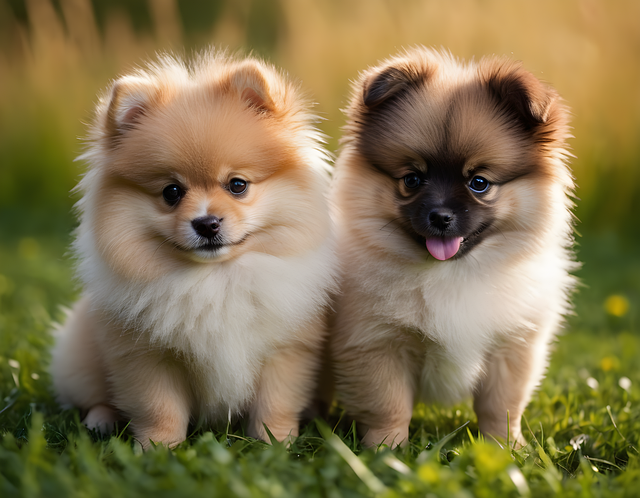
What is glaucoma in a dog?
You might notice your dog squinting more at mealtime or avoiding bright sunlight—these small changes could be early signs of a serious eye condition.
Ever catch your pup shaking their head like there’s a bug in there? Or maybe they’re pawing at their ears like crazy… those little signs could mean a yeast infection is brewing. I swear, my beagle Max’s ears used to get so gunky and smelly it made me wince. But here’s the thing—most of these messes are totally avoidable with some simple daily habits.
Moisture is yeast’s best friend, right? Those floppy-eared pups like Cocker Spaniels? Total magnets for the stuff. After a rainy walk or a dip in the lake, grab a soft towel (microfiber works magic) and dry those ears good. Not just a quick rub—get in there gently, especially around the creases. Skip the cotton swabs though—they push gunk deeper. Oops, learned that one the hard way with Max.
Grooming matters more than you’d think. I used to let the hair around his ear canals get wild… big mistake. That overgrown fur traps sweat and dirt, creating a little yeast party. A tiny pair of rounded scissors keeps it in check—go slow, or let your groomer handle it. And when you clean? Pick a gentle, pH-balanced cleaner (alcohol burns like crazy, trust me). A few drops, a soft massage at the base, then let your pup shake it out. So satisfying to watch them fling that excess gunk across the room… okay, maybe not that satisfying.
 Diet surprised me. Who knew what goes in their bowl affects their ears? Max couldn’t handle wheat—switched to grain-free, and suddenly those monthly infections slowed way down. But don’t guess—ask your vet first. They’ll probably suggest a food trial to find the culprit.
Diet surprised me. Who knew what goes in their bowl affects their ears? Max couldn’t handle wheat—switched to grain-free, and suddenly those monthly infections slowed way down. But don’t guess—ask your vet first. They’ll probably suggest a food trial to find the culprit.
Now, let’s chat about keeping things legal and neighbor-friendly. Some European cities fine folks for letting pet health issues get out of hand—if those infected ears make your pup scratch and bark all night, someone might complain. And those mandatory vet check-ups? Perfect time to get ears inspected. Your license renewal usually needs that exam proof anyway—killing two birds with one stone, right?
Walks are great, but that mud puddle your lab insists on diving into? It’s basically a yeast spa. After any outdoor adventure—especially wet ones—dry those ears. And hey, while you’re scooping poop (because, y’know, laws), take a peek. Weird smell? Discharge? Head home for a closer look.
Off-leash parks are the best… until they’re not. All that rolling in damp grass? Prime time for picking up unwanted ear guests. A quick wipe with vet-recommended cleanser when you get back works wonders. Just don’t overdo it—clean too often and you strip away the ear’s natural defenses. Counterproductive, right?
Every dog’s different. My sister’s greyhound’s ears stay bone dry no matter what, while Max’s need daily love. Learn your pup’s normal—their usual scent, how they react when you touch their ears. That way, you’ll spot trouble fast.
Oh, and tell your groomer to skip the ear plucking unless the vet says so. Some dogs need it, but for others? It irritates and invites yeast. Better safe than sorry.
At the end of the day, preventing ear yeast infections is just part of being a good dog owner—like keeping vaccines current, cleaning up after walks, and making sure Fido doesn’t bother the neighbor who hates barking. A little daily care keeps those ears happy… and keeps your pup from giving you those sad, scratchy-eyed looks.

You might notice your dog squinting more at mealtime or avoiding bright sunlight—these small changes could be early signs of a serious eye condition.

Let’s set the scene: It’s a sweltering Phoenix afternoon—105°F outside—and you rushed your 2-year-old Lab mix, Cooper, on a quick walk to “get it over with.”

Let’s get real: You’re in your Miami apartment, watching your 3-year-old Corgi, Loki, struggle to climb the stairs to your second-floor unit.

Many dog owners brush off occasional scratching as just “dog behavior,” but persistent itching often signals something more—like a food allergy.

You might first notice your dog scratching more than usual—chewing at their paws until the fur looks thin, or rubbing their face against the couch nonstop.

Let’s be real: You’re standing in your Chicago apartment, watching your 3-year-old Beagle, Max, huff and puff just to climb onto the couch.